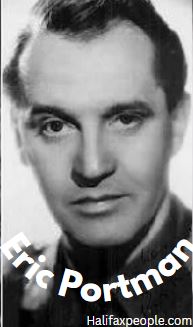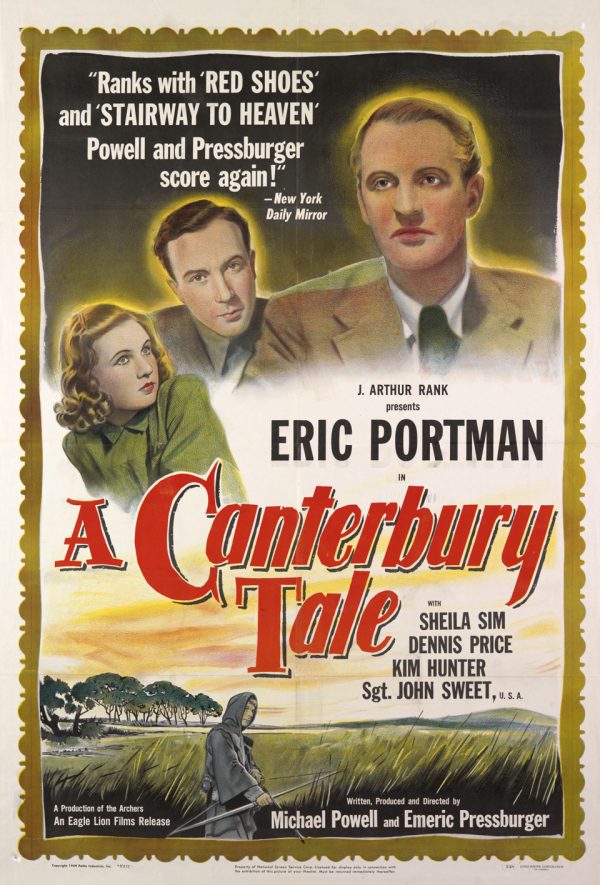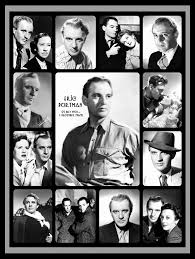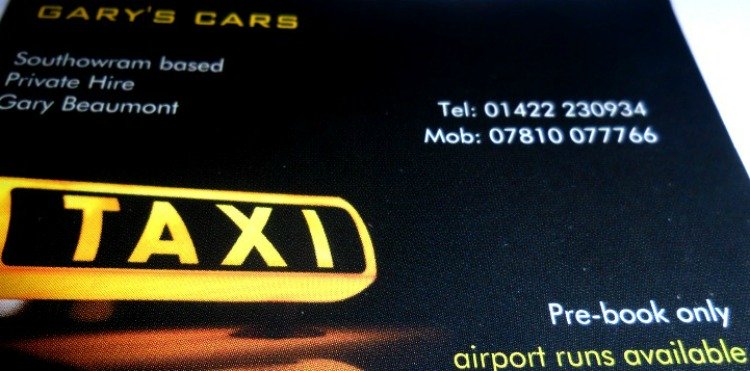
Eric Portman was best known for his portrayal of strong, sensitive men – often with a psychotic tendency – and his firm, commanding voice made him ideal for his rôles in war movies. He was rarely the ladies' man or the lover.
After leaving Rishworth School, Eric went to work for a short time in the Halifax shop of his father – Matthew Portman. He was a member of the Halifax Opera Society
Eric was a friend of Wilfred Pickles and Wilfred's brother, Arthur.
In 192?, the actor-manager Henry Baynton came to play at the Theatre Royal in Halifax. Eric joined the company.
On 14th February, 1928, he played Romeo at the re-opening of the Old Vic in London.
He had great success in the theatre in London and New York, and, from 1935, he appeared in many films, as shown in the Chronology. His only Hollywood appearance was a minor rôle in The Prince and the Pauper.
In 1942, he was voted one of the top 10 money-making stars in the British film industry.
In 1945, he won the Ellen Terry Award for Best Actor.
He was a quiet, retiring man – possibly because of his homosexuality, in an era which was much less open than today and when this was a criminal offence.
A life-long bachelor, Eric died of a heart ailment at his cottage in St Veep, Cornwall on 7th December 1969 .
Portman was a common face in the films of Michael Powell and Emeric Pressburger; portraying a determined Nazi U-Boat commander in 49th Parallel (1941), a heroic RAF officer stranded in Holland in One of Our Aircraft is Missing (1942) and the 'Glue Man' in the almost mystical A Canterbury Tale (1944). Other titles included: Squadron Leader X (1941), Anthony Asquith's We Dive at Dawn (1943), Gilliat and Launder's Millions Like Us (1943) and The Colditz Story (1955), The Mark of Cain (1947), Dear Murderer (1947), Daybreak (1947), Corridor of Mirrors (1948) & Bryan Forbes' Deadfall (1967).




If you have enjoyed your visit to this website, please spread the word by clicking the 'like' and 'share' buttons below. Thank you
